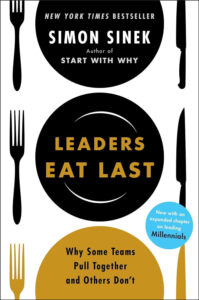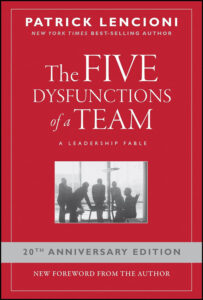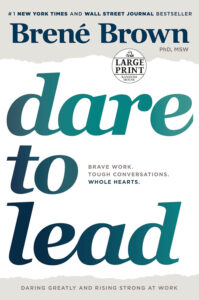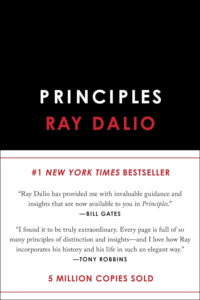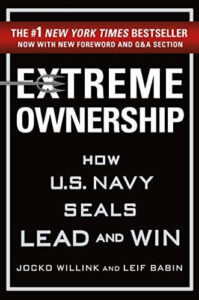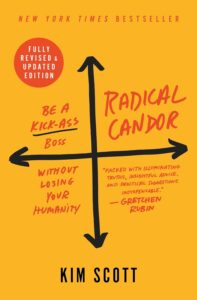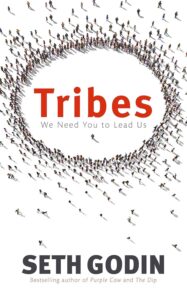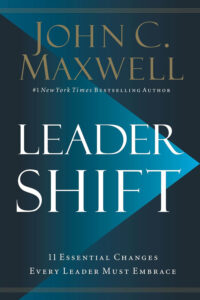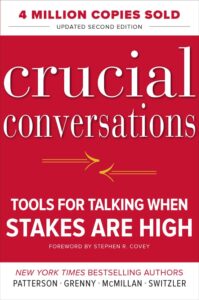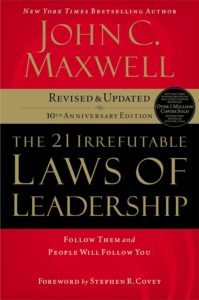Introduction
In both personal and professional realms, leadership is a vital skill. Exceptional leaders can inspire, motivate, and drive success. Whether you are an experienced executive or just beginning your leadership journey, these best books on leadership offer crucial insights and practical advice to enhance your leadership abilities.
1. “Leaders Eat Last” by Simon Sinek
In “Leaders Eat Last,” Simon Sinek explores how leaders can build trust and foster a positive team environment. He highlights the importance of empathy and supportive leadership in creating resilient and successful teams.
2. “The Five Dysfunctions of a Team” by Patrick Lencioni
Lencioni outlines common pitfalls that teams face and offers actionable strategies to overcome them. This book is essential for anyone building a cohesive, high-performing team.
3. “Dare to Lead” by Brené Brown
Brené Brown’s “Dare to Lead” emphasizes the power of vulnerability, courage, and authenticity in leadership. Brown offers practical advice on how leaders can build trust and create an open communication culture within their teams.
4. “Good to Great” by Jim Collins
Jim Collins’ “Good to Great” investigates why some companies transition from good to great while others do not. Collins provides a detailed analysis of key factors behind sustained success and exceptional performance.
5.“Start with Why” by Simon Sinek
In “Start with Why,” Simon Sinek highlights the critical role of purpose in leadership. When leaders understand and communicate their core purpose, they can inspire and energize their teams, leading to greater engagement and innovation.
6.“The Lean Startup” by Eric Ries
Eric Ries’ “The Lean Startup” presents a novel method for business development focused on agility and ongoing enhancement. It teaches leaders to create sustainable startups by continuously testing and refining their strategies.
7.“Drive” by Daniel H. Pink
In “Drive,” Daniel H. Pink examines the underlying science of motivation, questioning conventional beliefs about what motivates people. Pink highlights the importance of autonomy, mastery, and purpose in creating a motivated and efficient workforce.
8.“Principles” by Ray Dalio
Ray Dalio’s “Principles: Life and Work” offers a comprehensive guide to effective decision-making and organizational management based on Dalio’s own experiences. His principles provide a solid foundation for leaders who seek to build strong, principled organizations.
9. “The Art of War” by Sun Tzu
“The Art of War” by Sun Tzu is a timeless classic providing strategic insights into leadership and warfare. Its principles, while ancient, remain relevant for modern leaders seeking to gain a competitive advantage.
10.“Extreme Ownership” by Jocko Willink and Leif Babin
Willink and Babin, both former Navy SEALs, share their leadership principles learned in combat and how they can be applied to business and life. Their straightforward approach is inspiring and practical for leaders in any industry.
11. “Radical Candor” by Kim Scott
Kim Scott’s “Radical Candor” introduces a framework for effective communication in the workplace. By balancing care and directness, leaders can create a culture of honesty and respect that enhances team performance.
12. “Tribes” by Seth Godin
In “Tribes,” Seth Godin explores the concept of leadership within communities or “tribes.” Godin argues that anyone can become a leader by building and nurturing a passionate community around a shared vision.
13. “The Innovator’s Dilemma” by Clayton Christensen
Clayton Christensen’s “The Innovator’s Dilemma” examines why successful companies often fail to innovate. Christensen provides insights on how leaders can foster a culture of innovation to stay ahead in a rapidly changing market. Buy on Amazon
14. “Leadershift” by John C. Maxwell
John C. Maxwell’s “Leadershift” focuses on the critical shifts leaders must make to stay relevant and effective. Maxwell provides practical advice on how to adapt to changing circumstances and continuously improve as a leader.
15. “Crucial Conversations” by Kerry Patterson, Joseph Grenny, Ron McMillan, and Al Switzler
“Crucial Conversations” offers strategies for navigating difficult conversations in the workplace. The authors provide tools for effective communication, helping leaders resolve conflicts and build stronger relationships.
16.“The 21 Irrefutable Laws of Leadership” by John C. Maxwell
Maxwell outlines 21 essential laws of leadership that are timeless and applicable in any leadership context. This book is a comprehensive guide for developing your leadership skills and achieving long-term success.
Why Leadership Books Matter
Reading books on leadership helps you gain new perspectives, learn from the experiences of others, and develop crucial leadership skills. These books offer inspiration and practical tools to help you lead your team to success.
How to Choose the Right Leadership Book for You
- Identify Your Goals: Determine the specific aspects of leadership you want to improve or learn about.
- Read Reviews: Look at reviews and recommendations from other leaders and professionals.
- Consider Your Industry: Some leadership principles are universal, but others may be more applicable to specific industries.
Additional Tips for Aspiring Leaders
Continuous Learning: Continuously pursue new knowledge and viewpoints. As leadership consistently changes, keeping up-to-date is essential for an effective leader.
Network with Other Leaders: Connect with fellow leaders to exchange experiences and insights, learning from their achievements and challenges.
Practice Self-Reflection: Frequently assess your leadership style and performance. Self-awareness is vital for both personal and professional development.
Conclusion
These fifteen books on leadership offer a wealth of knowledge, inspiration, and practical advice for leaders at any stage of their journey. Whether you seek to refine your leadership style, build a cohesive team, or inspire others to achieve great things, these resources will help you enhance your leadership skills and drive success.

